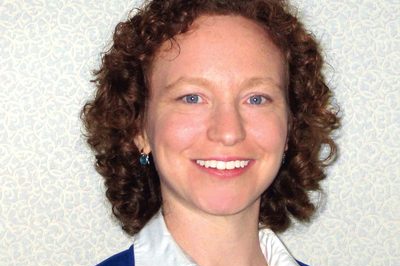This is a time of love and loss for me, marked by two tragic events. The first was the World Trade Center disaster of Sept. 11, 2001. For most of 2001, I worked on the top floor of Two World Financial Center in New York City. Every morning, around 8:45, I walked the passageway from the train station under the World Trade Center to my building next door. I started a new position in the company’s New Jersey office, however, on Sept. 10. At 8:46 a.m. on Sept. 11, when the first plane hit, I was pulling into a parking lot in suburbia, not in a crowd of panicked commuters underneath the World Trade Center.
Shortly thereafter, I asked my partner of eight years if she wanted to start a family. I knew her answer, for she had always wanted children, but until then, my career had been my priority. On Sept. 11, however, a heightened sense of fleeting possibilities motivated me to carpe ovum. Yes, it gave me pause, wanting to bring a child into a world where “detonate” is a reflexive verb. But when we lose our faith in the future, the terrorists have already won.
I don’t want to overstate my experience versus those who were killed, injured or knew those who were, either on 9/11 or in the military actions that followed. But the event made me realize how important it is to make the most of every moment with loved ones.
We had our child in 2003, when a family crisis again underscored that lesson. The day before our son was born, my father came home from the hospital after a stem-cell transplant for lymphoma, a type of blood cancer. He’d said that thinking about the pending birth of his first grandchild gave him strength.
This year, shortly before the 9/11 anniversary, my father passed away after what may have been complications from the pancreatic cancer he had survived in 2008. I’ve been awash in the usual gamut of emotions: grief over his passing, relief that he is no longer suffering and concern about the impact on my mother and my son. But I have also been reflecting on the gifts parents pass on to their children, which last even after they are gone.
It seems to me there are four key gifts:
Practical knowledge: We teach our children how to talk, use the bathroom, read, write, add and subtract. We may teach them to ride a bike, play an instrument, bake a cake, start a campfire or drive a car — the practical skills that, broadly speaking, they will most need to take care of themselves and get along in the world. But they are of limited use without other gifts as well.
A sense of values: We may not all have identical values, but we teach our children to know right from wrong as we perceive them. Most of us teach our children to share, be polite, play well with others and not to lie, cheat or steal — the guidelines that help them use their practical knowledge wisely.
We teach them what love is and how to express it.
We may also teach them precepts from our religion or codes of conduct handed down from our own parents — which brings us to the third gift.
Heritage: Most of us identify, at least to some extent, with a certain culture, race, religion, national or geographic origin, or combinations thereof. LGBT parents may even pass on a dose of LGBT culture to our children, regardless of our children’s own sexual orientation or gender identity.
Our heritage affects the practical knowledge we convey as well as our sense of values. I know how to make knishes — a potato-filled Jewish pastry — only because my father learned from his mother, and passed on the recipe to me. (I use the term “recipe” loosely, since my grandmother never wrote down a recipe in her life.) But even more than the food itself — and the fact that “low carb” was not in my ancestors’ vocabulary — my father showed me the importance of providing for one’s family, of taking the time to prepare things with care and then to enjoy them with each other.
However we come by our heritage, it gives us a sense of belonging, rooting us in the past so that we have a strong base from which to grow into the future.
Inspiration: The most ephemeral of the gifts, but the catalyst that helps our children make use of the others. Without inspiration, they would not want to take their first steps, even if we showed them how. They would not want to follow our sense of values if they did not see us do so to good effect. And they would not care about their heritage if we did not show them how it enriches our lives. Sometimes, too, we inspire them by showing them what they would not want to do. They learn from our mistakes as much as our successes.
Those of us who have ever lost a parent, through natural causes, accident or deliberate act, feel a similar pain. But these tragedies also offer us an opportunity to reflect on what they have given us, and to hope that we are able, in some small way, to offer our own gifts to our children in turn.
Dana Rudolph is the founder and publisher of Mombian (www.mombian.com), a blog and resource directory for LGBT parents.
